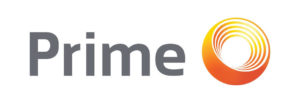*** Partner Blog Post ***
The purpose of the R&D Tax Incentive is to encourage companies to conduct experimental R&D activities that might not otherwise be undertaken. This guidance highlights key issues that companies and their tax advisors must consider when assessing the eligibility of specific software-related activities for registration under the R&D Tax Incentive. In particular, it highlights issues relating to:
• the registration of whole or large parts of software development projects
• the software development lifecycle and core R&D activities
• testing activities which are not core R&D activities
• a knowledge gap that requires an experiment to resolve, and
• other problem areas that companies and their R&D tax advisers most frequently get wrong.
The new Software Development guidance released follows earlier material from AusIndustryindicating concerns over inappropriate claims for Software Activities, and reports in the media of large software development R&D claims being found to be ineligible during review.
The general principles within this new guidance remains consistent, in that claimants must demonstrate how their software is generating new technical knowledge, rather than merely applying existing knowledge.
Please follow the below link to get a detailed understanding for claiming software related R&D
Summary
Eligible core R&D is not learning how to use existing products, technologies or techniques in the manner in which they are designed to be used. Eligible R&D is not using such products, technologies or techniques in a specific application.
When companies choose to register R&D activities relating to software development, they must demonstrate for each core R&D activity they wish to register:
• how the experimental activity was carried out
• that the activity was conducted for a significant purpose of generating new knowledge
• how the activity applied a systematic progression of work, and
• that the outcomes could not be known or determined in advance on the basis of current knowledge, information or experience.
Companies must clearly explain the activities and support the explanation with evidence.
It will not be sufficient for a company claiming a core R&D activity to rely on propositions such as:
• a specific product or functionality has not been developed before
• activities are eligible because they were undertaken through a software development lifecycle
• all software development activities involve a regime of testing (e.g. bug testing, beta testing, user acceptance testing) and for this reason they are all experimental with an outcome that cannot be known in advance
• the ‘Agile’ methodology doesn’t involve the production of supporting documentation
• the activities involve experiments but the records don’t go to that level of detail
• there are existing ways that are known to work, but only one will be the most efficient and that can’t be known without testing.
Typical issues encountered during ATO R&D audits (Common Errors)
While software development is often innovative, it does not always meet the definition of eligible R&D activities for the purpose of the R&D Tax Incentive. Software developers tend to use the term ‘R&D’ to refer to a broad range of activities, many of which may not meet the definition of core R&D activities as they are routine in nature. This different use of terminology can cause confusion and potentially expensive errors in claiming
Below are some common errors that companies and their tax advisors make when claiming the R&D Tax Incentive for software development activities.
R&D audits have increased in recent years. No organisation is immune to auditing, and every company needs to be prepared to defend itself in case the ATO or AusIndustry comes knocking.
How Prime can help

We can assist your company to identify whether you are eligible for the R&D tax incentive, navigating you through the registration process and claiming the tax incentive.
We can also assist your business with:
Please contact John Driscoll or Jitesh Nayak on 07 3010 8588 to get in touch with us to see how we can assist your business to access R&D grant effectively.